
Postgraduate or graduate education refers to academic or professional degrees, certificates, diplomas, or other qualifications pursued by post-secondary students who have earned an undergraduate (bachelor's) degree.

Education in the Netherlands is characterized by division: education is oriented toward the needs and background of the pupil. Education is divided over schools for different age groups, some of which are divided in streams for different educational levels. Schools are furthermore divided in public, special (religious), and general-special (neutral) schools, although there are also a few private schools. The Dutch grading scale runs from 1 to 10 (outstanding).
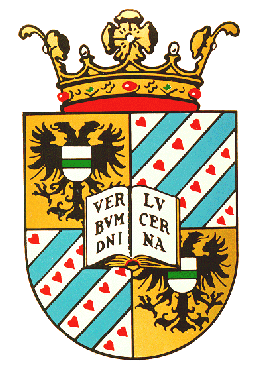
The University of Groningen is a public research university of more than 30,000 students in the city of Groningen in the Netherlands. Founded in 1614, the university is the second oldest in the country and one of the most traditional and prestigious universities in the Netherlands.

Daito Bunka University is a medium-size four-year university with two campuses: one at Itabashi in Tokyo and the other at Higashi Matsuyama in Saitama, Japan. The sports program is strong in rugby and distance running, with the Ekiden team coming fourth in the prestigious January 2009 New Year Hakone Ekiden. Daito Bunka focuses primarily on cultural arts and humanities. It is known as one of the top calligraphy schools in the nation and one of the few universities in Japan to teach Arabic and Urdu.
Education in Japan is managed by the Ministry of Education, Culture, Sports, Science and Technology (MEXT) of Japan. Education is compulsory at the elementary and lower secondary levels. Most students attend public schools through the lower secondary level, but private education is popular at the upper secondary and university levels. Education prior to elementary school is provided at kindergartens and day-care centres. The programmes for those children aged 3–5 resemble those at kindergartens. The educational approach at kindergartens varies greatly from unstructured environments that emphasize play to highly structured environments that are focused on having the child pass the entrance exam at a private elementary school. The academic year starts from April and ends in March, having summer vacation in August and winter vacation in the end of December to the beginning of January.
A Master of Laws is an advanced postgraduate academic degree, pursued by those either holding an undergraduate academic law degree, a professional law degree, or an undergraduate degree in a related subject. In most jurisdictions, the "Master of Laws" is the advanced professional degree for those usually already admitted into legal practice.
Maastricht University is a public research university in Maastricht, Netherlands. Founded in 1976, it is the second youngest of the thirteen Dutch universities.
A postgraduate diploma is a postgraduate qualification awarded after a university degree, which supplements the original degree and awards them with a graduate diploma. Countries that award postgraduate diplomas include but are not limited to Bangladesh, Barbados, Belgium, Brazil, Canada, Chile, Colombia, Germany, Hong Kong, Jamaica, Spain, Kenya, South Africa, Sudan, India, Ireland, the Netherlands, New Zealand, Nigeria, Republic of Panama the Philippines, Portugal, Russia, Pakistan, Poland, Saudi Arabia, Singapore, Sweden, the United Kingdom, Sri Lanka, Trinidad and Tobago and Zimbabwe. Level of education and recognition differ per issuing country.
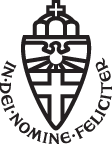
Radboud University (abbreviated as RU, Dutch: Radboud Universiteit, formerly Katholieke Universiteit Nijmegen) is a public research university located in Nijmegen, the Netherlands. The university bears the name of Saint Radboud, a 9th century Dutch bishop who was known for his intellect and support of the underprivileged.
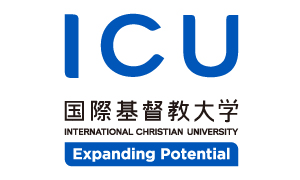
International Christian University is a non-denominational private university located in Mitaka, Tokyo, Japan, commonly known as ICU. With the efforts of Prince Takamatsu, General Douglas MacArthur, and BOJ President Hisato Ichimada, ICU was established in 1949 as the first liberal arts college in Japan. Currently the university offers 31 undergraduate majors and a graduate school. The Ministry of Education, Culture, Sports, Science and Technology selected ICU as one of the 37 schools for The Top Global University Project in 2014.
The Master of Philosophy is a postgraduate degree. An MPhil may be awarded to postgraduate students after completing taught coursework and one to two years of original research, which may also serve as a provisional enrolment for a PhD programme.

The Imperial College of Engineering was a Japanese institution of higher education that was founded during the Meiji Era. The college was established under the auspices of the Ministry of Public Works for the training of young Japanese engineers.

The International Institute of Social Studies (ISS) of Erasmus University Rotterdam is an independent and international graduate school of policy-oriented critical social science. ISS was established in 1952 by Dutch universities and the Netherlands Ministry of Education. The institution is located in Netherlands, The Hague, also known as 'The World's Legal Capital'.

University College Maastricht (UCM) is an English language, internationally oriented, liberal arts and sciences college housed in the 15th century Nieuwenhof monastery in Maastricht, Netherlands. Founded in 2002, it is the second of its kind in the Netherlands. The college is part of Maastricht University and offers a selective honours programme with a high workload. The Dutch Higher Education Guide ranked UCM the best bachelors programme in the Netherlands in 2015 and 2016; in 2012, 2014 and 2015 they ranked UCM the best university college in the Netherlands. In 2012, 2013, 2014, 2016 and 2018 Elsevier Magazine ranked UCM the best university college in the Netherlands in terms of student satisfaction.

The Asia University of Japan is a private university located in Musashino, Tokyo, Japan that offers courses in Business Administration, Economics, Law, International Relations and Urban Innovation.
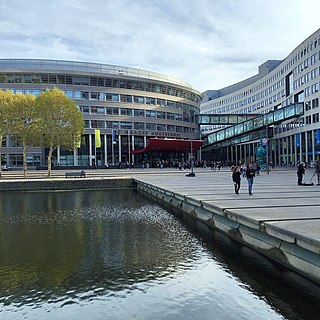
The Hague University of Applied Sciences, abbreviated THUAS, is a university of applied sciences with its campuses located in and around The Hague in the Randstad metropolitan region in the west of the Netherlands. The city is the Dutch seat of government and home to many major international legal, security and peace institutions. Since the university was founded in 1987 it has expanded to four campuses in the near-side cities of The Hague, Delft and Zoetermeer. The main campus in The Hague is located behind The Hague Hollands Spoor railway station by the Laakhaven Canal.
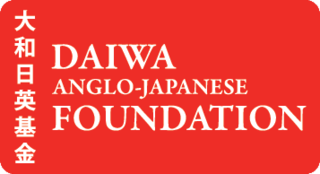
The Daiwa Anglo-Japanese Foundation is a United Kingdom-based charity established in 1988 to support closer links between Britain and Japan. It was founded with a benefaction from Daiwa Securities Co Ltd.
The Japan-Netherlands Institute (日蘭学会) is a research institute founded in 1975 to carry out research on historical Dutch-Japanese relations and to foster and promote modern academic and cultural exchange. In 1986, they received the Japan Foundation's special prize for contributions to cultural exchange and mutual understanding between Japan and other countries.

The Maastricht School of Translation and Interpreting is the only full-time institution of higher education for the training of translators and interpreters situated in the Netherlands.
Elizabeth A. Thomson is an Australian linguist. She is an adjunct professor in the Division of Learning and Teaching at Charles Sturt University, and Principal Honorary Fellow of the School of Humanities and Social Inquiry at the University of Wollongong. She is known for her research in linguistics, language education and training, language other than English and curriculum & assessment design, and has made contributions to the field of English and Japanese linguistics from the Systemic Functional perspective. She is a foundation member of the Japan Association of Systemic Functional Linguistics (JASFL), a member of the International Systemic Functional Linguistics Association (ISFLA) and the Australian Systemic Functional Linguistics Association (ASFLA), and also an associate member of The Council of Australasian University Leaders in Learning and Teaching and The Australasian Council on Open, Distance and e-Learning (ACODE).












